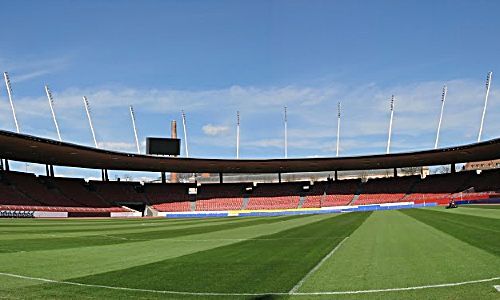The representatives of Swiss professional football leagues are not shy to ask the government for money. They aren't doing themselves any favors.
It all began with Ancillo Canepa. The president and biggest fan of FC Zurich demanded, in his function as head of finance of the Swiss Football League committee, a sum north of 100 million francs from the government to prevent Swiss professional football from going under («SRF»), as the clubs face the eery spectacle of games without spectators for months to come.
So far so good. Professional football clubs indeed have to solve the problem of how to run their clubs without being able to generate significant income and still pay the wages of players they have to take out of furlough if they finish the season. But it surely isn't impossible to find a solution with a sense of goodwill on all sides. The stability fund presented by Canepa may go a long way.
Sacking Players – a Typical Own Goal
But then, the problems will only just begin. Heinrich Schifferle, the level-headed president of the league, in an interview with «Sonntagszeitung» said that football needed 200 to 250 million Swiss francs ($207 million to $259 million) from the state – adding ominously that the clubs would quite likely never be able to pay back the money.
Now, the biggest problem in the football industry evidently is the business model. A normal company has to release workers and cut other costs if revenues fall. If a football club sacks its best-paid workers, the footballers, to make ends meet, it scores an own goal. They are not only the biggest cost factor, but also the clubs' main asset. No players means no transfers and no income.
Nobody Likes to Do Some Downsizing
In Switzerland, TV money and merchandising is fairly limited. Clubs rely on ticketing and catering income (and transfers). This is where the big and successful clubs make the difference to the clubs on the periphery.
If tickets and catering also become scarce, there is one answer left: the costs have to be adjusted to fit the revenue. So if professional football expects a bailout from the state, it first needs to do its homework. Which means writing budgets that will stand the test during the lean years to come.
Other Sports Manage to Survive
The 20 clubs in the Super and Challenge League (the two professional football leagues in Switzerland) have to present their budgets for the next season in early spring, which would suggest that the season 20/21 is already beyond repair. But surely, corona will allow the league to take a second look. If there are clubs that won't be able to balance their books, they may have to be relegated.
The difficulties of the sport are crying out for normal, easy-to-understand criteria to take over. Other sports, such as handboll and floorball, also have professional structures, but never developed equally absurd types of behavior as their footballing colleagues (remember all those pictures of diving millionaires?). The question is, whether football as such is less attractive to watch if the players aren't overpaid?
Rich Investors
The current problems also are shedding light on the investors of foreign, and Swiss, background. FC Lausanne-Sport and Grasshopper Club Zurich (GC), both of which are languishing in the second league, belong to chemicals maker Ineos and Chinesischen billionaire Guo Guangchang (Fosun International) respectively.
In international football, the rules of financial fairplay attempt to get sponsoring income and other revenues into a reasonable relation. These are the rules that have upset the business of Manchester City in England, a club that belongs to the sheiks in Abu Dhabi.
Swiss football would do very well to make a proper analysis of how much money an investor should be allowed to pour into a club in relation to the ordinary revenues. GC for instance has had very few fans for years (and therefore low income from catering), probably small income from transfers (the players weren't successful) and little merchandising to speak of.
Fans Will Also Watch Amateurs Play
Football could thus take the opportunity and rethink the business of the game in Switzerland. For too long, hope has been the guiding principle and rich people happy to pour money into clubs (Credit Suisse bankes and Roche heirs among them).
«NZZ» on Monday wrote that football had a problem with its image. This problem could best be solved by cutting the spending down to a reasonable level.
Once they are allowed to go back to a stadium, fans will actually go watch games between Zurich and Basel or Bern and St. Gallen even if their star players only get small compensation. Football may have scoffed at such a ridiculous notion for years – but today, it would make a lot of sense to go down that path. Others sports know how.




































